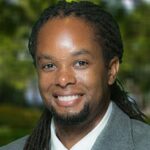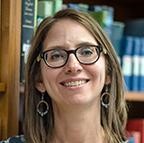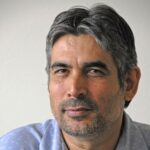Religion & Drugs
April 20th, 2023
The complex relationship between religion and drugs has long intrigued scholars and the general public. While some religious groups have issued prohibitions against the use of certain drugs, others have involved drugs in their ritual practices. Religion has also played a part in U.S. drug policy. Religious ideologies and institutions have mobilized in the War on Drugs, at the same time that transnational drug cartels have drawn on devotional practices and folk saints to maintain their power. Join us for a thought-provoking discussion with an interdisciplinary panel of experts to explore the fascinating and multi-faceted relationship between religion and drugs, a topic that offers abundant opportunities to think anew about the intersection of American religion, culture, and politics.
Host
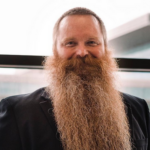 Brad Stoddard, Associate Professor of American Religious History, McDaniel College
Brad Stoddard, Associate Professor of American Religious History, McDaniel College
Brad Stoddard is an Associate Professor of Religious Studies at McDaniel College in Westminster, MD. His research interests include religion in/and American prisons, entheogens, religion and the economy, religion and public policy, method and theory, and new craft beer releases.
Panelists
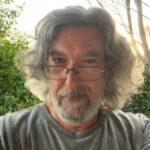 Gary Laderman, Goodrich C. White Professor of American Religious History and Cultures, Emory College
Gary Laderman, Goodrich C. White Professor of American Religious History and Cultures, Emory College
Gary Laderman, Goodrich C. White Professor of American Religious History and Cultures, is the author of Don’t Think About Death: A Memoir on Mortality (Deeds Publishing, 2020). His other books include an exploration of the sacred in the new American religious landscape: Sacred Matters: Celebrity Worship, Sexual Ecstasies, the Living Dead, and Other Signs of Religious Life in the United States (The New Press, 2009); two books on the history of death in America (read the new one to understand why): The Sacred Remains: American Attitudes Toward Death, 1799-1883 (Yale University Press, 1996) and Rest in Peace: A Cultural History of Death and the Funeral Home in Twentieth-Century America (Oxford University Press, 2003).
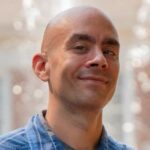 Andrew Monteith, Assistant Professor of Religious Studies, Elon University
Andrew Monteith, Assistant Professor of Religious Studies, Elon University
Andrew Monteith’s research examines questions of secularism, religion, and power in American life, both past and present. He is also interested in the ways that America itself can serve as its own kind of religion. His first book, Christian Nationalism and the Birth of the War on Drugs (New York University Press, 2023) explains how religion, race, and US colonialism germinated the early Drug War during the nineteenth and early twentieth centuries.
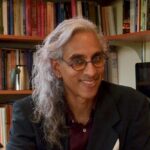 Deepak Sarma, Inaugural Distinguished Scholar in the Public Humanities, Case Western University
Deepak Sarma, Inaugural Distinguished Scholar in the Public Humanities, Case Western University
Dr. Deepak Sarma, professor of Indian religions and philosophy at Case Western Reserve University, is the author of Classical Indian Philosophy: A Reader (2011), Hinduism: A Reader (2008), Epistemologies and the Limitations of Philosophical Inquiry: Doctrine in Madhva Vedanta (2005) and An Introduction to Madhva Vedanta (2003).
2023 Young Scholars
Religion & Animal and Food Justice
January 20, 2022
At this time of planetary crisis and pandemic, it is critical to address questions about overlapping and multispecies injustice. This episode will interrogate issues about food accessibility and the frontline communities of climate change (human and non-human animal), specifically those who are the first to bear the brunt of environmental degradation and pandemics and the industries and policies most responsible for contributing to them. These panelists illuminate the ways that religious institutions are constructed and enacted in response to these evolving social and environmental conditions, especially as they pertain to animal, food, and racial justice; the histories of activist communities; and the work of diverse coalitions, including Black vegans, radical healthcare advocates, and animal rescue efforts, that imagine and enact forms of multispecies solidarity in the midst of society’s death-dealing structures. Join humanities and social science scholars for a conversation at the intersection of religion, animal rights, and food justice.
Cohosts
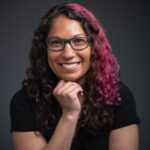 Andrea R. Jain, Professor of Religious Studies, Indiana University-Purdue University Indianapolis
Andrea R. Jain, Professor of Religious Studies, Indiana University-Purdue University Indianapolis
Andrea R. Jain, Ph.D. is professor of religious studies at Indiana University, Indianapolis and research affiliate at Indiana University’s Environmental Resilience Institute, editor of the Journal of the American Academy of Religion, and author of Selling Yoga: From Counterculture to Pop Culture (Oxford 2014) and Peace Love Yoga: The Politics of Global Spirituality (Oxford, 2020). She received her doctorate degree in religious studies from Rice University in 2010. Her areas of research include religion and capitalism; global spirituality and modern yoga; gender, sexuality, and religion; and theories of religion.
Jain’s current work, including the documentary film Predation, calls for humanities scholars to center questions about the current pandemic and planetary crisis. The purpose of humanities scholarship, Jain argues, should include the following: to remind scientists and health experts that equity must be at the center of their response to pandemic and planetary crisis; to uncover and analyze the needs for repair in the relationships between human societies and environmental bodies and non-human animals; and to diagnose capitalism’s death-dealing structures and the causes of ecological death in the hope that activists, in turn, can build on that scholarship to imagine radically different futures.
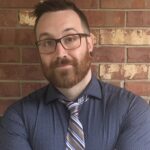 Jonathan Sparks-Franklin, Independent Scholar
Jonathan Sparks-Franklin, Independent Scholar
He has a PhD in Religious Studies from Indiana University, an MDiv from Princeton Theological Seminary, and an MTS from United Theological Seminary. Jonathan teaches in the Theology Department at Xavier University. Additionally, he is the Director of Adult Education at Covenant Presbyterian Church in Springboro, OH
Panelists
Christopher Carter, Assistant Professor, Assistant Chair and Department Officer of Theology and Religious Studies, University of San Diego
Christopher Carter’s teaching and research focuses on philosophical and theological ethics, Black and Womanist theological ethics, environmental ethics, and animals and religion. He approaches religious studies as a liberation ethicist committed to exploring how the moral economy of U.S. religious thought and culture impact the everyday lives of marginalized populations, particularly African American and Latino/a communities. He is active in the leadership of the American Academy of Religion where he serves as a steering committee member of both the Religion and Ecology and the Animals and Religion Group. Professor Carter is also a pastor within the United Methodist Church and currently serves as an assistant pastor at Pacific Beach United Methodist Church.
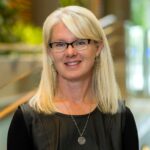 Lori G. Beaman, Professor and holder of the Canada Research Chair in Religious Diversity and Social Change, University of Ottawa
Lori G. Beaman, Professor and holder of the Canada Research Chair in Religious Diversity and Social Change, University of Ottawa
Lori G. Beaman is internationally recognized for three core intellectual innovations: 1) the concept of deep equality as an alternative to tolerance and accommodation in responding to religious diversity; 2) the identification of the transformation of majoritarian religion into culture and heritage; and 3) the illumination of an emerging ‘will to religion’ and its impact on the growing category of those who choose no religion. She previously directed the Religion and Diversity Project (2010-2017, religionanddiversity.ca) and is currently the Principal Investigator of the Nonreligion in a Complex Future (NCF) Project, a $2.5 million, 7-year Partnership Grant funded by the Social Sciences and Humanities Research Council and housed at the University of Ottawa.
https://youtu.be/j0DfJyrhKLU
Religion & Gender and Race in the 2020 Political Landscape
October 15, 2020
100 years after the ratification of the 19th amendment and at this moment of racial reckoning, the American political climate is still dominated by the unequal representation of women, especially women of color, in local, state, and electoral politics. For the inaugural session of “Religion &”, we will explore the intersection of gender, race, politics, and the role of religion. Specifically, this panel will analyze the role that religious traditions play in sustaining or mitigating new models of engagement, political formation, and social change. How do current works on the intersection of gender, race, religion, and political participation help us frame and anticipate this current electoral season? Furthermore, have our theoretical focus on certain groups, like white Evangelicals, and insistence on traditional constructions of topics, like climate change from the perspective of nation-states and the corporate elite, adversely impacted our ability to tell a compelling story of the American religious landscape and its resistances to the current moment? How might we tell a more comprehensive story of the American electorate and its relationship to gender, race, religion, and belonging?
Panelists
 Melissa Borja, University of Michigan
Melissa Borja, University of Michigan
Melissa Borja is assistant professor in the Department of American Culture and core faculty member in the Asian/Pacific Islander American Studies Program at University of Michigan. Her book Follow the New Way: Hmong Refugee Resettlement and Practice of American Religious Pluralism” (Harvard) is forthcoming.
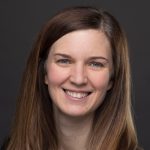 Grace Yukich, Quinnipiac University
Grace Yukich, Quinnipiac University
Grace Yukich is professor of Sociology at Quinnipiac University. She is the author of One Family Under God: Immigration Politics and Progressive Religion in America (Oxford) and co-editor of Religion Is Raced: Understanding American Religion in the 21st Century (NYU).
Cohosts
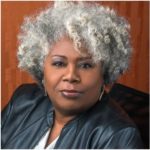 Anthea Butler, University of Pennsylvania
Anthea Butler, University of Pennsylvania
Anthea Butler is associate professor of Religious Studies at the University of Pennsylvania. She is the author of Women in the Church of God in Christ: Making A Sanctified World (UNC) and the forthcoming White Evangelical Racism: The Politics of Morality in America (UNC).
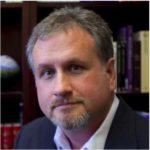
Philip Goff, Indiana University-Purdue University Indianapolis
Philip Goff is Chancellor’s Professor of American Studies and Director of the Center for the Study of Religion and American Culture at Indiana University-Purdue University Indianapolis.
K-12 Professional Development Programs
Introduction to K-12?
NEH Institutes and Seminars
Muslim American Identities, Past and Present
In 2015, the Center for the Study of Religion and American Culture hosted sixteen K-12 school teachers for a three-week seminar exploring study the diverse facets of Muslim American identity, both as grounded in the past and as experienced in the present. Summer scholars read thirty primary source documents and two major academic monographs; heard from two visiting scholars and visited two mosques; and created individual research projects. You can view examples of their research projects (HERE IN OUR FABULOUS DOC LIBRARY).
For information on the 2017 version of this program, please check out Muslim American Identities.
The Many and the One: Religion, Pluralism, and American History
In July 2010, the Center for the Study of Religion and American Culture conducted a three-week NEH summer institute for teachers on the role of religion in American history and life. The institute supported the studies of twenty-four talented teachers from across the country as they joined with nationally renowned scholars to explore how religion has shaped, and been shaped by, the American experience. Each teacher presented a project of his or her choosing at the end of the institute, focusing on some aspect of teaching about the role of religion in America. The lesson plans and teaching modules developed by those teachers can be found (HERE IN OUR FABULOUS DOC LIBRARY).
Religion & Memorializing the State
January 21, 2021
Panelists
Elaine Peña, The George Washington University
Elaine Peña’s areas of expertise include border studies, anthropology of religion, built environment, performance theory, transnationalism, and Latinx and Latin American studies. Her most recent book ¡Viva George! Celebrating Washington’s Birthday at the U.S.-Mexico Border considers the tradition of commemorating George Washington’s Birthday on the Texas-Tamaulipas border.
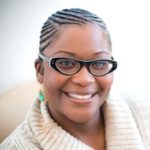 Nichole R. Phillips, Emory Univeristy
Nichole R. Phillips, Emory Univeristy
Nichole R. Phillips’ research interests lie at the intersection of religion and American public life with a focus on community and congregational studies where she investigates the moral commitments and vision of community and congregational members. Her scholarship treats religion, critical race theory, gender, and cultural memory studies. She is also developing new research interests in the sociology of science and religion. Her most recent book is titled Patriotism Black and White: The Color of American Exceptionalism.
Cohosts
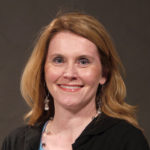
Kristina Horn Sheeler, Indiana University-Purdue University Indianapolis
Kristina Horn Sheeler is Professor of Communications Studies and Honors College Executive Associate Dean at IUPUI. Her academic interests include political communication, gender, and public identity, studying the ways in which political identity is rhetorically constructed and contested in popular media.
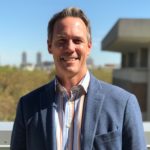
Raymond Haberski, Jr., Indiana University-Purdue University Indianapolis
Raymond Haberski, Jr. is Professor of History and Director of American Studies at IUPUI. He also directs the Institute for American Thought and is part of the Center for the Study of Religion and American Culture. Dr. Haberski is trained in twentieth century U.S. history with a focus on intellectual history. As editor, along with Philip Goff and Rhys Williams, his forthcoming book is titled Civil Religion Today: Religion and the American Nation in the 21st Century (2021).
Religion & Climate Change
March 18, 2021
As the pandemic dominated Americans’ attention in 2020, another crisis—climate change—worsened with alarming speed. The year 2020 brought the most active Atlantic hurricane season ever, the West Coast’s worst fire season, and the hottest global temperatures (tied with 2016). All of this unfolded even as the Trump administration, in alliance with evangelical climate-change deniers, continued to thwart policies that would combat global warming. Now, with the election of Joe Biden, the U.S. has rejoined the Paris climate accord and environmentalism is regaining political momentum. What is religion’s role in this new environment, and how does it shape Americans’ understanding of climate change? What questions should scholars be pursuing on religion and climate? Join our expert panelists as they reflect on these and related questions.
Panelists
Amanda J. Baugh, California State University, Northridge
Amanda Baugh is Associate Professor of Religious Studies at Cal State Northridge. She specializes in religion and the environment, with particular attention to race, ethnicity, and class. Her first book, God and the Green Divide: Religious Environmentalism in Black and White (California, 2016), seeks to decenter religious environmentalism as mainly the product of white elites, a story she continues in her current project, Rethinking Religious Environmentalism.
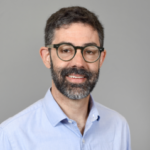 Evan Berry, Arizona State University
Evan Berry, Arizona State University
Evan Berry is Assistant Professor of Environmental Humanities and Senior Sustainability Scholar in the Global Institute of Sustainability and Innovation at Arizona State University in Tempe. He is the author of Devoted to Nature: The Religious Roots of American Environmentalism (California, 2015), which traces the influence of Christian theology on the environmental movement in the U.S. He is president-elect of the International Society for the Study of Religion, Nature, and Culture.
Cohosts
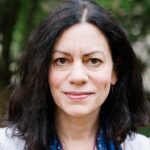
Lisa H. Sideris, Indiana University, Bloomington
Lisa H. Sideris is Professor of Religious Studies and Associate Director of the Center for Religion and the Human at IU Bloomington. In fall 2021, she will join the faculty of the Environmental Studies Program at the University of California, Santa Barbara. An environmental ethicist who studies the interface of science and religion, she is the author of Consecrating Science: Wonder, Knowledge, and the Natural World (California, 2017), and Environmental Ethics, Ecological Theology, and Natural Selection (Columbia, 2003), and is co-editor of Rachel Carson: Legacy and Challenge (SUNY, 2008).
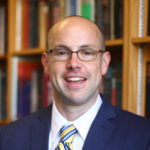 Peter J. Thuesen, Indiana University-Purdue University Indianapolis
Peter J. Thuesen, Indiana University-Purdue University Indianapolis
Peter J. Thuesen is Professor of Religious Studies, co-editor of Religion and American Culture: A Journal of Interpretation, and Director of Humanities Research in the Center for the Study of Religion and American Culture at IUPUI. His latest book, Tornado God: American Religion and Violent Weather (Oxford, 2020), traces how religious views of weather and climate disasters have evolved from the colonial era to Donald Trump. His other books include Predestination: The American Career of a Contentious Doctrine (Oxford, 2009), and In Discordance with the Scriptures: American Protestant Battles over Translating the Bible (Oxford, 1999).
Religion & Refugees and Immigration
September 16, 2021
At this very moment, thousands of Afghan refugees are arriving in the United States and other places around the world after a frenzied evacuation effort and bungled military withdrawal. This moment not only revives old debates about the United States’ relationship with Afghanistan and the Taliban regime, but it also reopens critical questions about policies on refugees, migration, and asylum. At the same time, the US continues to contend with the ongoing arrival of migrants fleeing Central America and the contested nature of a US-Mexico border policy. In this “Religion &”, panelists will address the history of refugee and migration policies and the role of religious organizations in supporting or challenging policies. Additionally, this episode will explore how scholars of religion and practitioners are employing new methods to study the movement, agency, and institution building of refugee and migrant communities. Join scholars and leaders in the field of migration policy as they explore these issues and the larger relationship between religion, refugees, and migration policy in the United States.
Cohosts

Melissa Borja, University of Michigan
Melissa Borja is Assistant Professor of American Culture at the University of Michigan, where she is a core faculty member in the Asian/Pacific Islander American Studies Program. She researches migration, religion, politics, pluralism, and race in the United States and the Pacific World, with special attention to how religious beliefs and practices have developed in the context of the modern American state. Her book, Follow the New Way: Hmong Refugee Resettlement and the Practice of American Religious Pluralism (under contract, Harvard University Press) explores the religious dimensions of American refugee care.
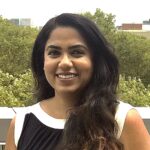 Soulit Chacko, Postdoctoral Fellow and Affiliate Faculty, Department of Sociology, IUPUI
Soulit Chacko, Postdoctoral Fellow and Affiliate Faculty, Department of Sociology, IUPUI
Soulit Chacko is a Postdoctoral Fellow with the Religion and Urban Culture 2.0 at Indiana University’s school of Liberal Arts at IUPUI. She is particularly interested in exploring how local histories are reshaped through migration processes and how they are practiced and embodied. Her current project focuses on the experiences of low-wage immigrant women workers in the U.S. using an intersectional lens that includes race, religion, gender, immigration status, and nationality. She earned her Bachelor’s in Urban Planning and Public Policy from University of Illinois at Chicago and Masters and PhD in Sociology from Loyola University Chicago.
Panelists
Salah Ansary, Senior District Director, Lutheran Community Services Northwest
Salah Ansary is the Senior District Director of Multicultural Community Services (MCS) at Lutheran Community Services Northwest. Mr. Ansary knows from personal experience the pain and suffering that refugees endure when they leave their homeland for a new country. He first came to the U.S. in 1978, during a time of political turmoil and war in his native Afghanistan. He continued his education after arriving in the northwest and earned his Master’s degree. In 1984, Mr. Ansary started his career at what was then Lutheran Family Service of Oregon and Southwest Washington, eventually becoming Senior District Director of MCS. For the last 37 years, he has helped develop transformative programs and services for refugees to rebuild their lives throughout the Northwest.

Todd Scribner, Educational Outreach Coordinator, Department of Migration and Refugee Services, United States Conference of Catholic Bishops; Religion and Resettlement Project, Princeton University
Todd Scribner is an independent researcher who also serves as Educational Outreach Coordinator in the Department of Migration and Refugee Services at the United States Conference of Catholic Bishops. He has written extensively on the Catholic Church in the public square—particularly migration and issues related to Catholic identity, including A Partisan Church: American Catholicism and the Rise of Neoconservative Catholics (2015).
The Center for the Study of Religion & American Culture
The Center for the Study of Religion and American Culture was established in 1989 to explore the connection between religion and other aspects of American culture. We are a research and public outreach institute that supports the ongoing scholarly discussion of the nature, terms, and dynamics of religion in America. As a program of the IU School of Liberal Arts at IUPUI, the Center pursues its aim as part of the mission of liberal and humane learning. It seeks to elevate among students, faculty, and the larger American public the understanding of the influence of religion in the lives of people.
Scholarly Resources
The Center supports and advances the scholarly study of religion through a wide range of programs and initiatives:
- National conferences and symposia
- Books, essays, bibliographies, and research projects
- Fellowships for new scholars
- Semiannual scholarly periodical Religion and American Culture: A Journal of Interpretation
- Institutes for teachers to help them know how to talk about religion in the classroom
Public Teaching
The Center also promotes increased understanding of religion’s role in current events among the general public. In addition to hosting public meetings, we are here to serve as a resource for media organizations, publishers, and writers. The Center’s officers and researchers are available as expert sources for journalists reporting on topics related to American religious history and practice.
Religion & Environmental Catastrophe
February 16, 2023
As a result of human activities, the Earth system is undergoing dramatic change and a disruption of the climate, signaled through mega-fires, depleted natural resources, and mass extinctions. At the same time that there are religious denials of climate change and other human-induced environmental catastrophes, there are also religious calls to restore and respect the environment and the other creatures who live here and to turn to more sustainable practices in order to address pressing global-scale environmental problems as well as the social problems they exacerbate. This conversation will address the American religious landscape and its myriad responses to environmental catastrophe.
Host
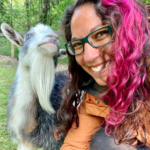 Andrea R. Jain, Professor of Religious Studies, Indiana University-Purdue University Indianapolis
Andrea R. Jain, Professor of Religious Studies, Indiana University-Purdue University Indianapolis
Andrea R. Jain, Ph.D. is professor of religious studies at Indiana University, Indianapolis and research affiliate at Indiana University’s Environmental Resilience Institute, editor of the Journal of the American Academy of Religion, and author of Selling Yoga: From Counterculture to Pop Culture (Oxford 2014) and Peace Love Yoga: The Politics of Global Spirituality (Oxford, 2020). She received her doctorate degree in religious studies from Rice University in 2010. Her areas of research include religion and capitalism; global spirituality and modern yoga; gender, sexuality, and religion; and theories of religion.
Jain’s current work, including the documentary film Predation, calls for humanities scholars to center questions about the current pandemic and planetary crisis. The purpose of humanities scholarship, Jain argues, should include the following: to remind scientists and health experts that equity must be at the center of their response to pandemic and planetary crisis; to uncover and analyze the needs for repair in the relationships between human societies and environmental bodies and non-human animals; and to diagnose capitalism’s death-dealing structures and the causes of ecological death in the hope that activists, in turn, can build on that scholarship to imagine radically different futures.
Panelists
Timothy Beal, Professor of Religion, Case Western University
Timothy Beal is a writer and scholar in the field of religious studies whose work explores matters of religion, media, and American culture, past and present. He is Distinguished University Professor, Florence Harkness Professor of Religion, and Director of h.lab at Case Western University. He has published sixteen books, including Religion in America: A Very Short Introduction (Oxford, 2008), The Book of Revelation: A Biography (Princeton, 2018), and When Time is Short: Finding Our Way in the Anthropocene (Beacon, 2022).
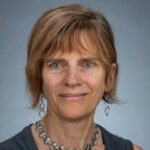
Sara Pike, Professor of Comparative Religion, California State University, Chico
Dr. Pike’s research has focused on ritual studies and new religious movements and she has written numerous articles and book chapters on contemporary Paganism, ritual, the New Age movement, the Burning Man festival, spiritual dance, environmental activism, and youth culture. Much of her current research focuses on the relationship between humans and the natural environment. Her ethnography of contemporary Pagan festivals, Earthly Bodies, Magical Selves: Contemporary Pagans and the Search for Community, was published by the University of California Press in 2001 and New Age and Neopagan Religions in America was published by Columbia University Press in the Contemporary American Religion Series in 2004. It was named a Choice “Outstanding Academic Title.” My most recent book, For the Wild: Ritual and Commitment in Radical Eco-Activism, was published by the University of California Press in 2017.
 Jenna Wagner, graduate student in Engineering Management, Case Western University
Jenna Wagner, graduate student in Engineering Management, Case Western University
Jenna is a recent graduate of Case Western Reserve University with a degree in Biomedical Engineering and a Mechanical Design and Manufacturing Minor. She is enrolled in Case Western’s Masters of Engineering Management program for 2022-2023. Jenna researches the functional areas of business and management while leveraging her critical thinking skills and technical engineering background to prepare for real-world problem solving and decision making.
